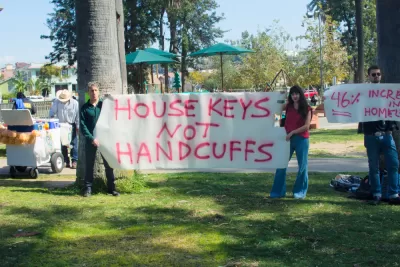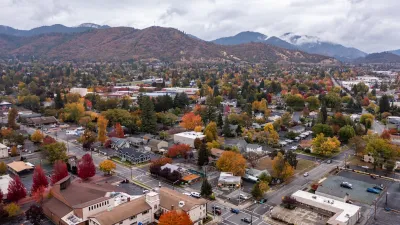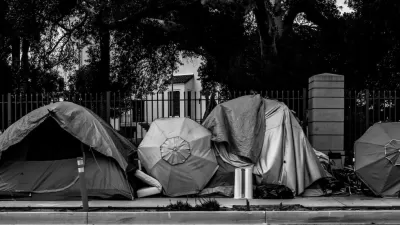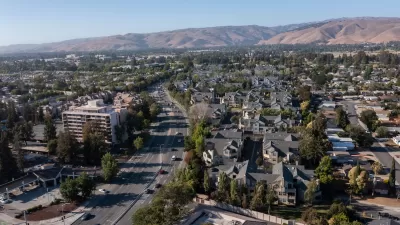Following a key Supreme Court ruling, some cities are imposing more restrictive laws on outdoor sleeping and encampments.

Months after the U.S. Supreme Court ruled that cities can criminalize unhoused residents without providing alternate housing options, over two dozen California cities have “passed, strengthened, or are considering” ordinances that penalize people experiencing homelessness for sleeping in public places.
As Marisa Kendall explains in CALmatters, “Santa Monica is considering barring its homeless residents from using sleeping bags, San Joaquin County is poised to force unhoused people to move 300 feet every hour, and Fresno has made it illegal to camp anywhere at any time — even if no shelter is available.” In Palm Springs, a camping ban on sidewalks, parks, and public spaces won’t go into effect until the city finishes building a new shelter facility.
The policies come as no surprise to advocates who warned that the decision in Grants Pass v. Johnson would pave the way for more punitive laws that criminalize homelessness rather than address its root causes. “Without opening more shelters or affordable housing, breaking up homeless camps will do nothing but shuffle people from one spot to another. Activists say displacing people from encampments can sever their ties to case workers, medical clinics and other vital services.”
FULL STORY: No sleeping bags, keep moving: California cities increase crackdown on homeless encampments

Trump Administration Could Effectively End Housing Voucher Program
Federal officials are eyeing major cuts to the Section 8 program that helps millions of low-income households pay rent.

Planetizen Federal Action Tracker
A weekly monitor of how Trump’s orders and actions are impacting planners and planning in America.

Ken Jennings Launches Transit Web Series
The Jeopardy champ wants you to ride public transit.

California Invests Additional $5M in Electric School Buses
The state wants to electrify all of its school bus fleets by 2035.

Austin Launches $2M Homelessness Prevention Fund
A new grant program from the city’s Homeless Strategy Office will fund rental assistance and supportive services.

Alabama School Forestry Initiative Brings Trees to Schoolyards
Trees can improve physical and mental health for students and commnity members.
Urban Design for Planners 1: Software Tools
This six-course series explores essential urban design concepts using open source software and equips planners with the tools they need to participate fully in the urban design process.
Planning for Universal Design
Learn the tools for implementing Universal Design in planning regulations.
Ada County Highway District
Clanton & Associates, Inc.
Jessamine County Fiscal Court
Institute for Housing and Urban Development Studies (IHS)
City of Grandview
Harvard GSD Executive Education
Toledo-Lucas County Plan Commissions
Salt Lake City
NYU Wagner Graduate School of Public Service





























